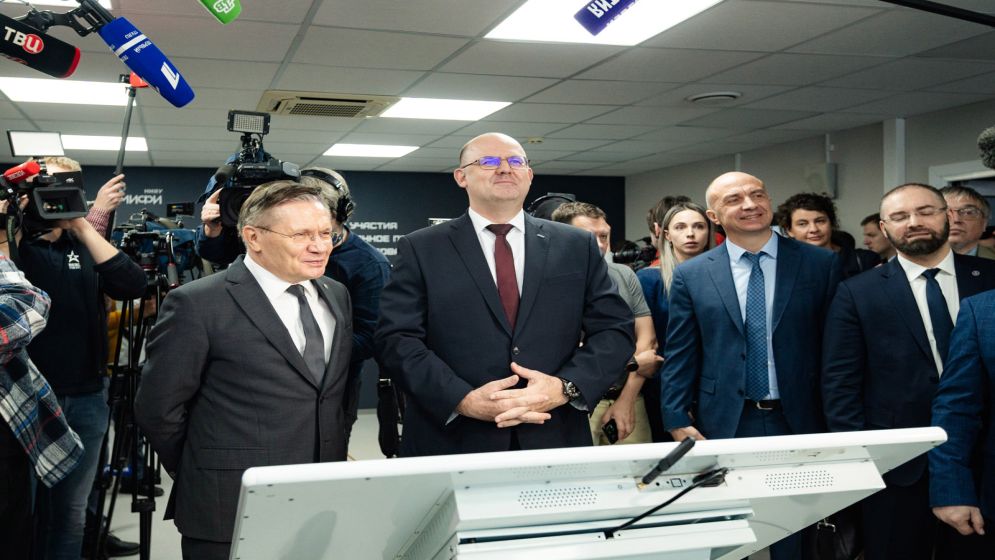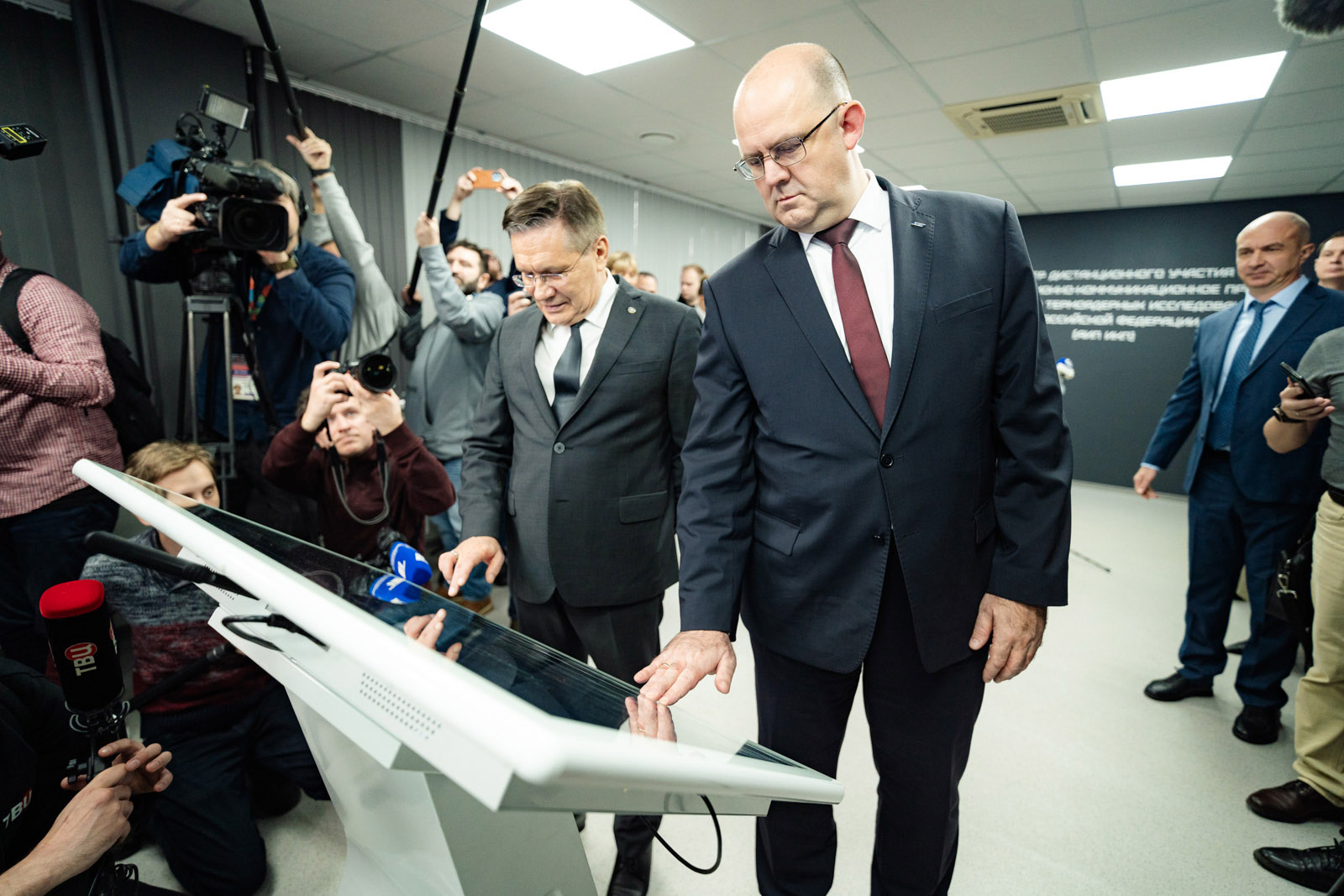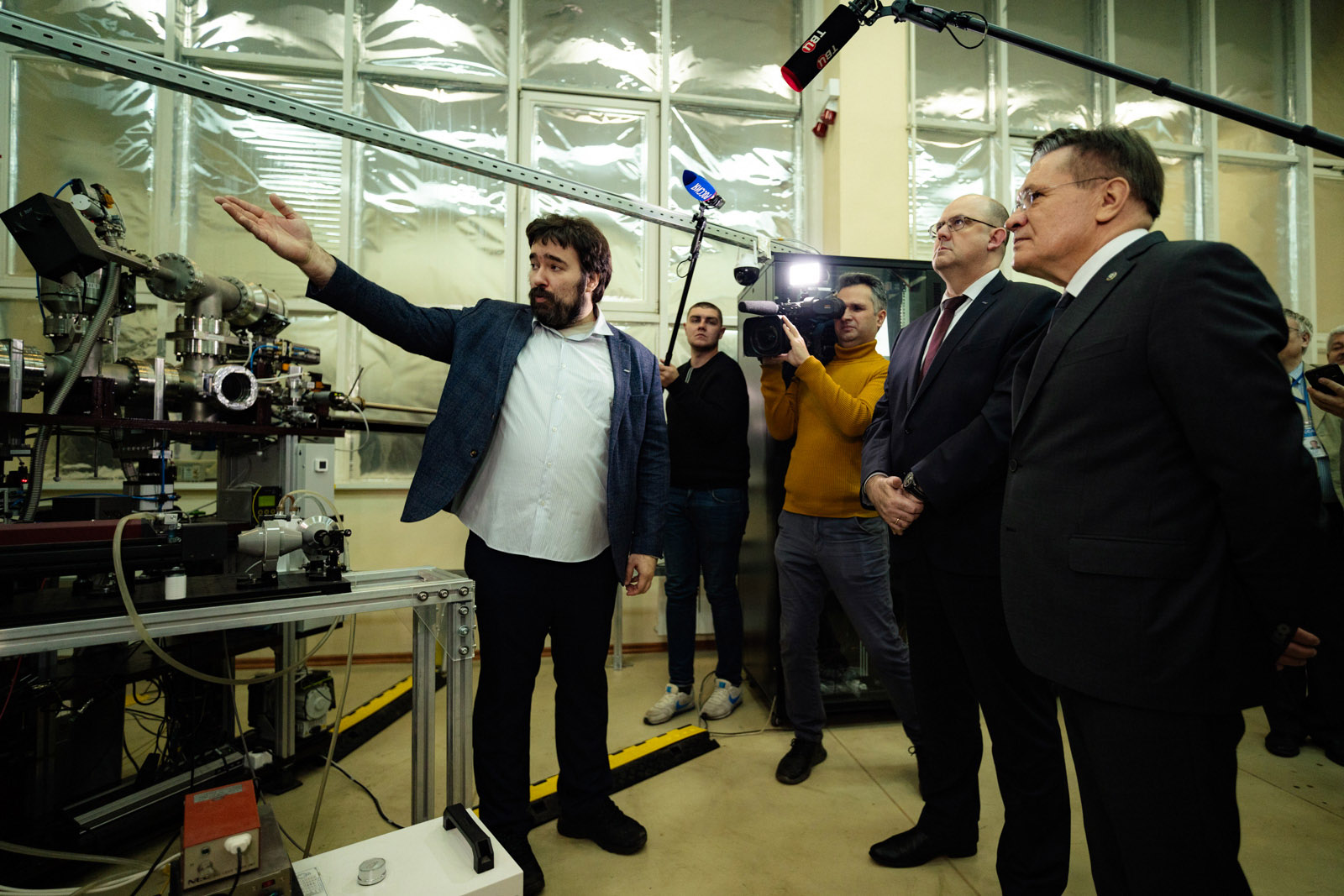MEPhI opens fusion research center, links Tokamak to unified network

Photos credit: Rosatom
The National Research Nuclear University MEPhI in Russia has inaugurated a Center for Remote Participation (CRP), a key component of the Unified Information Space for Fusion Research created by Rosatom.
During the event, the university’s educational tokamak, MEPHIST-0, was connected to the information network. Developed by MEPhI students and staff, this device is integral to nuclear fusion research.
The Unified Information Space for Fusion Research is an advanced network linking Russia’s leading scientific institutions engaged in controlled thermonuclear fusion.
CRPs enable network members to access experimental data, collaborate remotely, and participate in live experiments at cutting-edge facilities.

The event began with an inspection of the tokamak and its control room, where Stepan Krat, a senior researcher at MEPhI’s Institute of Laser and Plasma Technologies, demonstrated how the installation could facilitate remote experiments across other Rosatom and Russian Academy of Sciences facilities.
In a significant milestone, scientists from Moscow, St. Petersburg, Novosibirsk, and France observed the first remote operation of the MEPHIST-0 training tokamak in real-time.
The 20-millisecond experiment achieved a plasma temperature of 500,000 degrees Celsius, with data instantly transmitted to the Unified Information Space.
Anatoly Krasilnikov, Director of the Project Center ITER, emphasized the significance of integrating the training tokamak into the Unified Information and Communication Space: "This connection will ensure a steady influx of personnel into thermonuclear research."

Rosatom’s Director-General highlighted the event's importance: "MEPhI students now have the opportunity to actively contribute to one of the world’s most ambitious scientific projects from their first year of study."
MEPhI Rector Vladimir Shevchenko underlined the importance of training future specialists capable of not only operating but also innovating fusion devices.
He credited Stepan Krat and a team of students for initiating the tokamak's development in 2017. The educational tokamak will now allow scientists nationwide to conduct remote experiments.
This initiative aligns with the goals of the International Thermonuclear Experimental Reactor (ITER) project in southern France, a global collaboration advancing nuclear fusion research.
—

